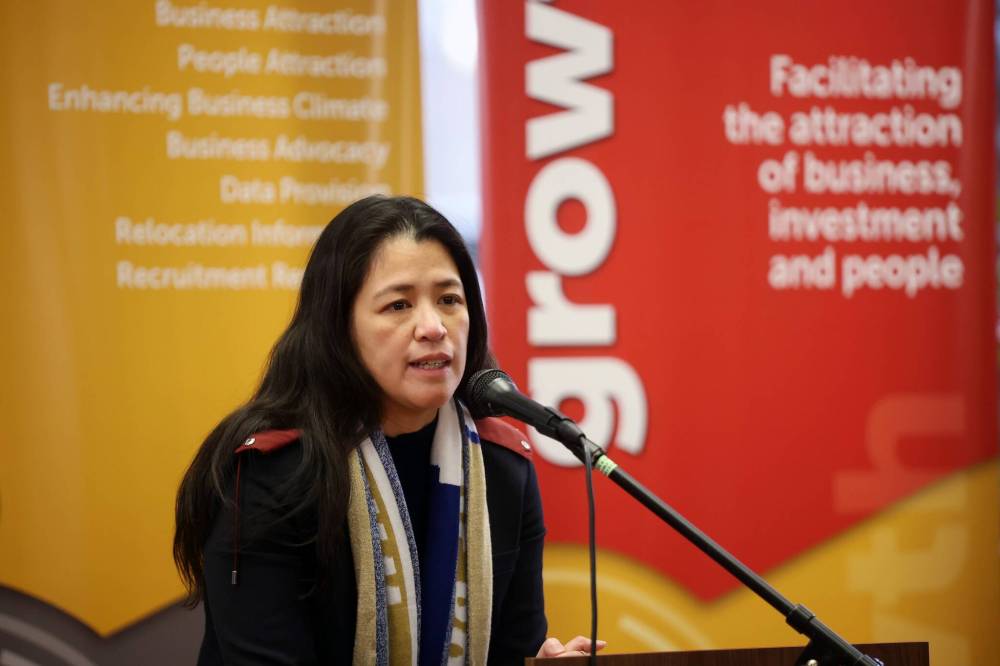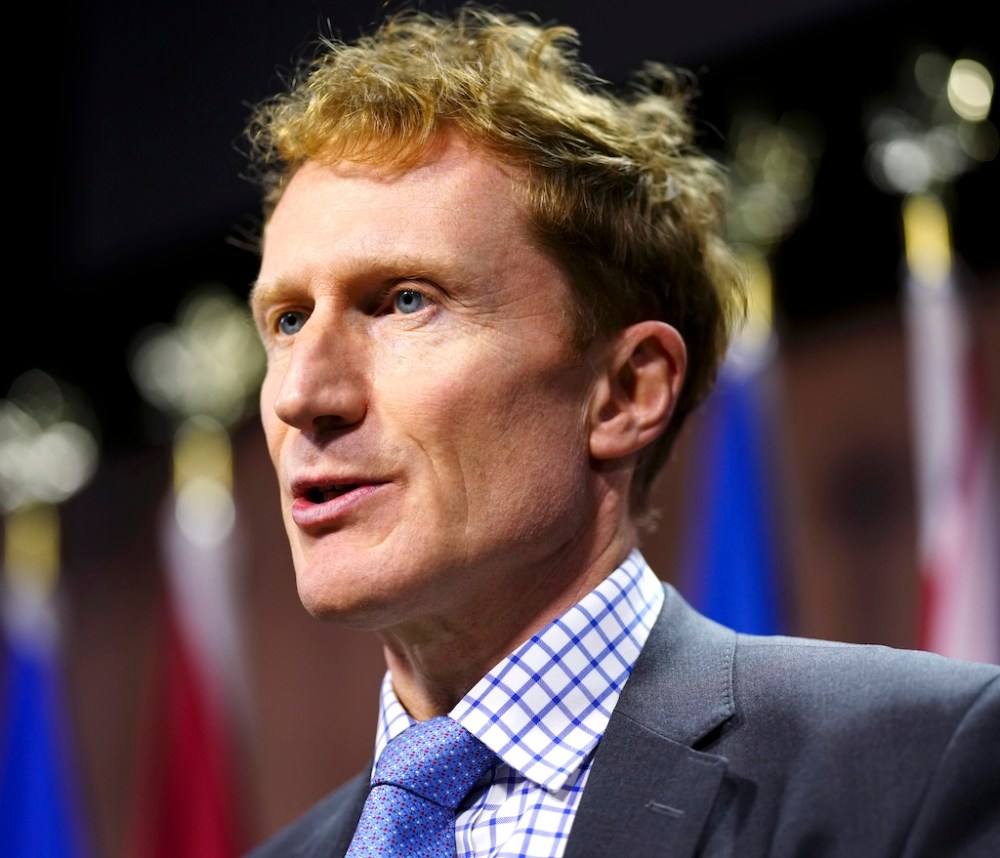Manitoba fights for more skilled workers after Ottawa cuts program
Advertisement
Read this article for free:
or
Already have an account? Log in here »
To continue reading, please subscribe:
Monthly Digital Subscription
$1 per week for 24 weeks*
- Enjoy unlimited reading on winnipegfreepress.com
- Read the E-Edition, our digital replica newspaper
- Access News Break, our award-winning app
- Play interactive puzzles
*Billed as $4.00 plus GST every four weeks. After 24 weeks, price increases to the regular rate of $19.95 plus GST every four weeks. Offer available to new and qualified returning subscribers only. Cancel any time.
Monthly Digital Subscription
$4.99/week*
- Enjoy unlimited reading on winnipegfreepress.com
- Read the E-Edition, our digital replica newspaper
- Access News Break, our award-winning app
- Play interactive puzzles
*Billed as $19.95 plus GST every four weeks. Cancel any time.
To continue reading, please subscribe:
Add Free Press access to your Brandon Sun subscription for only an additional
$1 for the first 4 weeks*
*Your next subscription payment will increase by $1.00 and you will be charged $16.99 plus GST for four weeks. After four weeks, your payment will increase to $23.99 plus GST every four weeks.
Read unlimited articles for free today:
or
Already have an account? Log in here »
Hey there, time traveller!
This article was published 20/01/2025 (409 days ago), so information in it may no longer be current.
Manitoba is lobbying the federal government to reconsider its decision to slash by half the number of skilled immigrants the province is allowed this year, as business leaders say the economy cannot afford the cut.
The province was informed last week its allocation of skilled workers under the nominee program would be cut to 4,750 this year, from 9,540 in 2024. Manitoba’s immigration and labour minister, Malaya Marcelino, is negotiating for more.
Marcelino said after national immigration levels were in rolled out in late October, she and members of the Manitoba Business Council, Manitoba Chambers of Commerce and the Association of Manitoba Municipalities advocated “with one voice” for federal Immigration Minister Marc Miller to increase the province’s allocation to 12,000 nominees.
TIM SMITH / BRANDON SUN FILES Labour and Immigration Minister Malaya Marcelino
“He knew fully well that that’s what we need as a province,” Marcelino said Monday. “At the very least, do not cut what we had, which was 9,500.”
In October, the federal government announced it would cut immigration levels across the board in 2025, including a 50 per cent drop in the provincial nominee program to help relieve pressure on the housing market.
Marcelino spoke to Miller about the matter last week when he was visiting the Manitoba legislature.
“I was able to secure his commitment to Manitoba to continue negotiating an increase to that allotment,” she said. “He explained that this was the starting point for all provinces and then you go from there.”
“What this will mean, practically, for Manitoba companies is that jobs may remain unfilled, and without the requisite workforce, it will be difficult for Manitoba companies to grow.”–Elisabeth Saftiuk
The Manitoba Chambers of Commerce vice-president of policy and government relations said the cut will hurt businesses.
“What this will mean, practically, for Manitoba companies is that jobs may remain unfilled, and without the requisite workforce, it will be difficult for Manitoba companies to grow,” said Elisabeth Saftiuk. “…while businesses have already been facing concerns over labour shortages, now we hear of a reduction of immigration coming into our province.”
When Miller was in the city last week, he praised the provincial government for offering medical treatment to two children from Gaza.
Sean Kilpatrick / THE CANADIAN PRESS FILES Immigration Minister Marc Miller.
Marcelino said she couldn’t divulge any details about the “ongoing” negotiation with Ottawa concerning the provincial nominee numbers, or what Manitoba must do to convince the federal government to increase Manitoba’s allocation.
“We do not get interprovincial migration like Alberta,” she said. “We do not get the federal government immigration-stream-people that choose Manitoba first. No, they go to Vancouver and Toronto. The other provinces get their immigration that way.”
The nominee program allows Manitoba to attract immigrants who have work experience and ties to the province who stay in the province, Marcelino said.
“That’s why this is our bread and butter,” she said.
Cam Dahl, general manager of the Manitoba Pork Council, said he was disappointed the concerns of Manitobans hadn’t been taken into consideration.
“These are people that are coming into Manitoba to make it their permanent home and filling key needs for labour in the province,” said Dahl. He wrote to Miller on Oct. 28 after the announced cuts to immigration across the country, saying he understood the pressures on housing and public services in large urban centres.
“That’s why this is our bread and butter.”–Malaya Marcelino
“However, pressures in rural Canada are not the same as in our large cities,” the letter said. “New Canadians are a critical part of the labour force in places like Notre Dame de Lourdes, Neepawa, Brandon, and even in Winnipeg.”
Marcelino said it’s urgent to boost this year’s number of nominees.
“We have to get that very soon — like in the next month or so — because there’s a federal election coming up,” Marcelino said.
Wayne Ewasko, the interim leader of the Manitoba Progressive Conservatives, who is a former immigration minister, said the NDP government should have been negotiating harder and sooner for more provincial nominees.
“At the 11th hour, I wouldn’t be stating my case now,” Ewasko said. “The federal government has been signalling this for months.”
The provincial nominee program was slashed to 55,000 spots across Canada this year, down from 110,000 in 2024.
The federal government said it was lowering overall immigration targets to 395,000 in 2025, 380,000 in 2026 and 365,000 in 2027. That’s down from 485,000 in 2024.
Canadians are “increasingly seeing (immigration) as having a negative impact on access to health care and the availability of affordable housing, signalling the need to stabilize levels,” the federal department warned Nov. 7, 2023.
“It seems the Kinew government and his minister were fine waiting until this actually happened,” Ewasko said.
carol.sanders@freepress.mb.ca

Carol Sanders
Legislature reporter
Carol Sanders is a reporter at the Free Press legislature bureau. The former general assignment reporter and copy editor joined the paper in 1997. Read more about Carol.
Every piece of reporting Carol produces is reviewed by an editing team before it is posted online or published in print — part of the Free Press‘s tradition, since 1872, of producing reliable independent journalism. Read more about Free Press’s history and mandate, and learn how our newsroom operates.
Our newsroom depends on a growing audience of readers to power our journalism. If you are not a paid reader, please consider becoming a subscriber.
Our newsroom depends on its audience of readers to power our journalism. Thank you for your support.
History
Updated on Monday, January 20, 2025 6:39 PM CST: Final version



